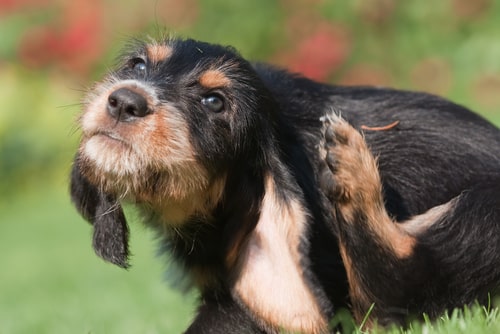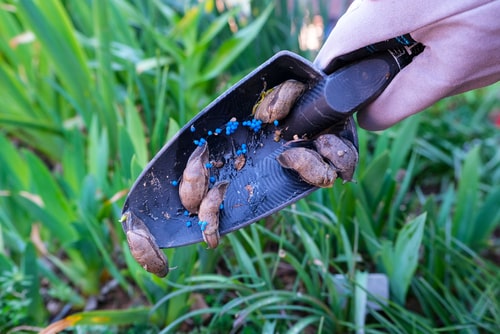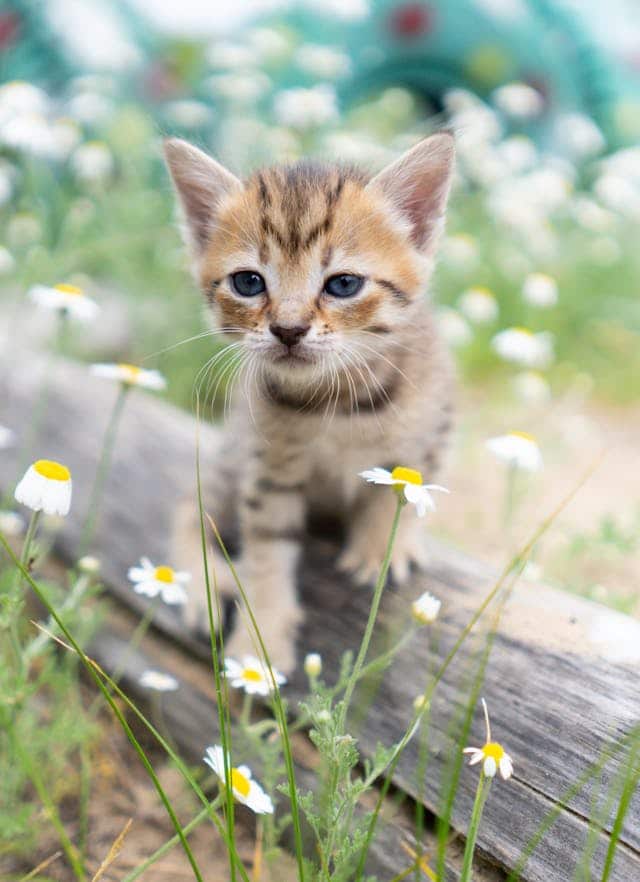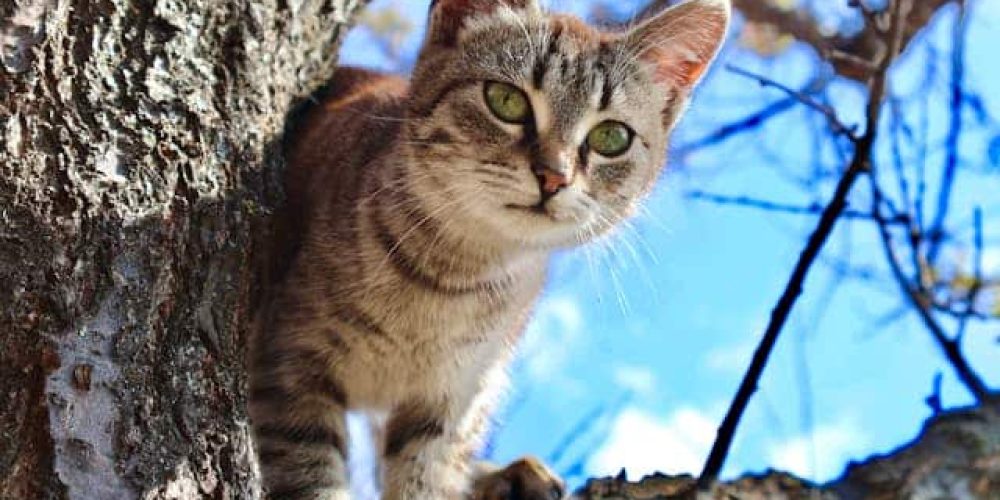Spring dangers: plants that are dangerous to cats and dogs
There are some plants, both indoor and outdoor, that can cause illness in cats and dogs. Luckily, most only cause self-limiting tummy upsets but there are a few that are highly toxic.
- Lilies are extremely dangerous to cats and can cause mild problems in dogs too. All parts of the plant are toxic and symptoms include vomiting, weakness and can lead to kidney failure. Even if your cat grooms lily pollen off their fur, it can lead to harmful effects.

- Daffodils are toxic to cats and dogs. The bulb, plant and flower parts are all dangerous. Even water from a vase of daffodils can cause illness. Symptoms of daffodil poisoning include vomiting and tummy pain.

- Rhododendrons can cause severe illness in cats and dogs, even in small amounts. Signs of poisoning include vomiting, drooling, tremors and breathing problems.

- Spring plants that can cause mild reactions include spring crocus, tulips, hyacinths, iris, bluebells, and snowdrops. Symptoms include vomiting, diarrhoea, drooling and lethargy, but may be much more severe if a large quantity or the bulb has been eaten.
- With many plants, the bulb is the most dangerous part, as it contains the highest concentration of toxic substances. Pets like to dig these up and ingest or lick them.
Contact a vet immediately if your pet has been in contact with a harmful plant. Our Joii vets can help with advice; we are here all day, every day. Download the app and call us now.
Find out more about what plants are harmful to cats and dogs in our poisonous plant article. And read more about what to do and how to prevent your pet from eating things they shouldn’t.
Spring dangers: easter foods to avoid in cats and dogs
From Easter eggs to delicious Sunday roasts, where are the hazards lurking?
- Raisin poisonings in cats and dogs are unfortunately common in the spring. Raisins (and other types of dried grapes) are found in popular treats like hot cross buns, scones and fruit cakes. Sultanas, grapes and currants cause the same problems; they can all lead to severe illness, including kidney disease, even if only a small amount is eaten.
- Chocolate poisoning is also very common around Easter. Depending on how much is eaten, symptoms can be very serious. Dark chocolate is much more dangerous than milk and white chocolate.
- Watch out for fatty foods, such as roast lamb, butter, and fat trimmings: these might lead to an upset tummy or, even worse, pancreatitis. Foods containing members of the Allium family (garlic/leek/onion) are poisonous to pets; cats are particularly sensitive to this type of toxicity.
- The artificial sweetener xylitol is poisonous to cats and dogs. This can be found in sweets, cakes and other foods and household items. Find out more here.
Speak to a vet as soon as possible if your pet has been in contact with any of these dangerous foods. Getting treatment quickly is essential for a positive outcome.

Spring cleaning hazards for cats and dogs
Embarking on the annual tradition of a spring clean-out? Be cautious!
- Ingestion of cleaning products is not very common, as they tend to have a bad taste. But be aware that products like bleach, oven cleaners, and laundry detergents can all cause illness in pets. Side effects from these products include corrosive damage to the tummy and severe irritation to the eyes, mouth and skin.
- Be careful when clearing out toys, make-up, electronics and any other objects in the house. Pets may try to eat something, even if it’s not normally edible! We call these foreign bodies, and they are usually things that are not toxic but still dangerous, as they may lead to a blockage in the tummy.
- Paint and varnish can be harmful to pets, especially if they take more than a few licks. Luckily, it’s not something that happens very often.
Skin problems of cats and dogs during spring
- Just like in humans, spring is a common time for allergies in cats and dogs, especially hay fever. Hay fever in pets is an allergy to pollen, though it’s not as common as flea or food allergies. Symptoms of allergies in pets include itching, ear infections, sneezing, and red skin.
- Fleas and worms are common at all times of the year, but they tend to be most active in the spring and summer. Ticks are usually seen when the weather starts to get warmer too. Ticks can carry disease so it’s recommended to remove them as quickly as possible.
- Pets can be bitten or stung by ants, bees, mosquitoes, and even spiders. Insect bites and stings are more common as the weather starts to get warmer, and even indoor-only pets are at risk. Most times, these bites resolve on their own in a few days but watch out for nasty reactions.
Speak to one of our Joii vets if your pet is itching or scratching or if you have any questions about their skin health.

Garden and outdoor hazards during spring
With the longer daylight hours and more pleasant weather, people and their pets tend to spend more time outdoors. And while the benefits of this for everyone’s wellbeing are undeniable, try to stay informed about potential problems.
- Garden products like fertilisers, weed or moss killers, and lawn feeds vary in toxicity level. Pets may be at risk from eating sprayed plants or grass or drinking from containers. Symptoms can range from mild tummy upset to more severe, such as heart and kidney problems, depending on the ingredients of the product.
- Often in spring, the weather can be quite wet, leading to large populations of slugs and snails. They can carry lungworm, which spreads to dogs if they lick slime trails, drink from puddles or eat grass. Signs of lungworm in dogs include coughing, lethargy and diarrhoea. Lungworm needs urgent treatment with your vet.
- Slug bait pellets can contain metaldehyde, which is extremely toxic to cats and dogs. Slug bait, unfortunately, seems to be very tasty to pets and can lead to serious signs like twitching and seizures. Ingestion of slug bait unfortunately needs an emergency trip to the vets.
- Many rodenticides (rat/mouse bait) are also toxic to pets. Ingestion of these can lead to problems with blood clotting and symptoms include pale gums and rapid or difficulty breathing. Cats can also be at risk if they eat a rodent that has ingested rodenticide.
- Adder bites are most common in the spring, as this is when the snake emerges from hibernation. Bites tend to occur around the face and paws, and signs include swelling, bruising, pain and vomiting. Take your pet to your vet immediately if they have a snake bite.

How to keep your pet safe this spring: safety tips
If you suspect your pet has eaten something toxic, contact a vet straight away to discuss the next steps.
- Don’t leave your pet unsupervised when cleaning or cooking objects are lying around
- Keep anything dangerous or poisonous to pets locked away (indoors and outdoors!) and make sure the rubbish bin is secure.
- When selecting garden products, choose a pet-safe one. The same goes for indoor plants or bouquets.
- Use regular parasite control and check your pet for ticks when they come inside after a walk.
- Monitor your pet at all times on walks and in the garden; don’t allow them to roam unsupervised, especially if they tend to scavenge.
- The pet poison helpline is a useful service to be aware of in emergencies.

Embrace the beauty of spring with your four-legged-friend and make sure you can fully en-Joii it together.
Our Joii vets are available 24 hours a day, 7 days a week. Download the app and speak to a professional if you have any questions or concerns about your pet.











